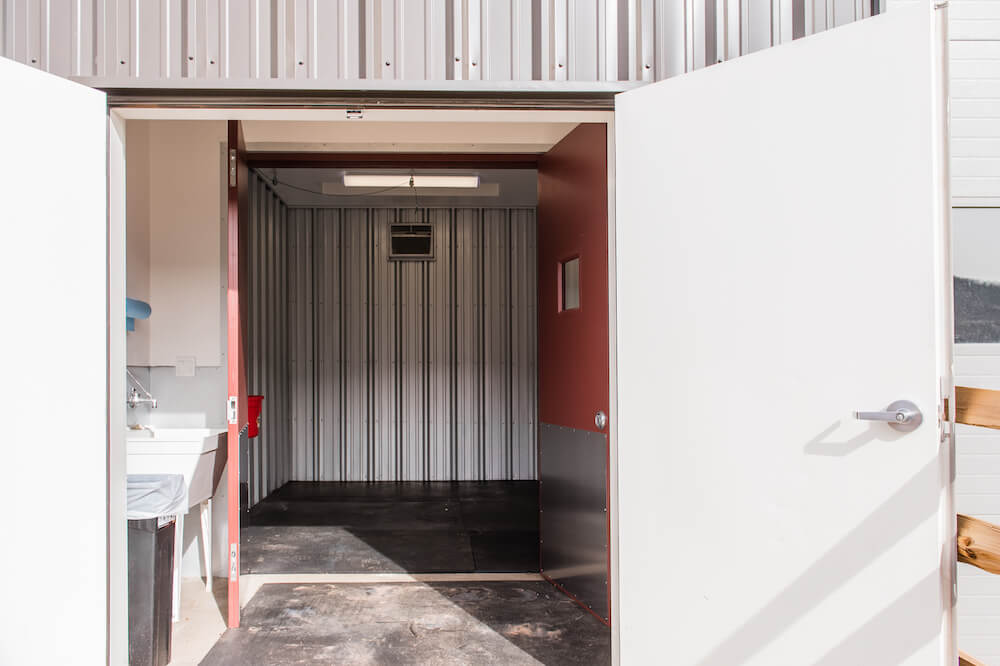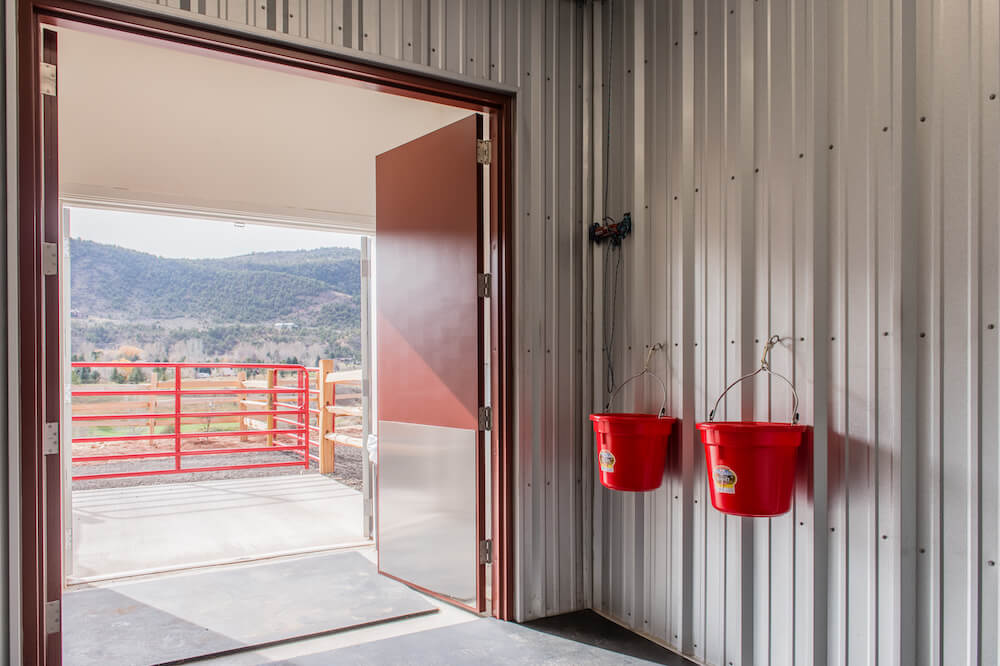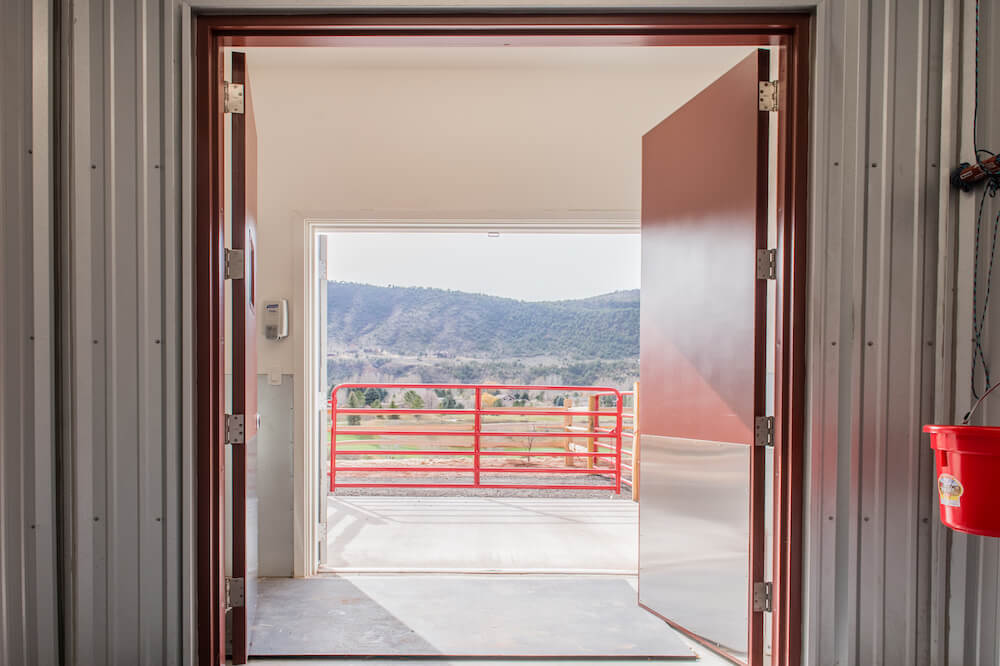We always hope for the best but as a proactive measure, biosecurity is one of our top priorities. Given the high degree of attention among veterinarians and the equine community to the spread of infectious diseases, RFEMC offers isolation for medical cases. Our isolation stall includes a separate entrance, barrier nursing precautions, and its own HVAC and plumbing system to prevent the transmission of any contagious organism. Team members wear personal protective equipment whenever handling horses in isolation or those suspected to be carrying an infectious disease.
Findings that may warrant placing your horse in isolation can include fever, nasal discharge, diarrhea, stumbling/weakness, or abnormal behavior. Please be aware that although your horse is isolated, he/she still receives the best of care and attention.
What infectious/contagious diseases could my horse get?
Respiratory diseases:
- Streptococcus equi equi infection commonly known as Strangles.
- Equine influenza
- Equine herpes virus
- Equine rhinitis viruses
These respiratory diseases are typically transmitted from horse to horse by respiratory secretions.
Gastrointestinal diseases:
- Salmonella
- Clostridium perfringens/difficile
- Equine enteric Coronavirus (different from COVID-19)
- Potomac Horse Fever (not common in Colorado)
These diseases are transmitted from horse to horse by feces.
Neurologic diseases:
- Equine herpes virus - this disease initially causes mild respiratory disease that may lead to neurologic disease
- Rabies - all mammals are at risk of this disease
The above is not a comprehensive list of all contagious diseases that affect horses but those that have been observed in this part of Colorado.
If you have questions about medical isolation, contact us or call us.



